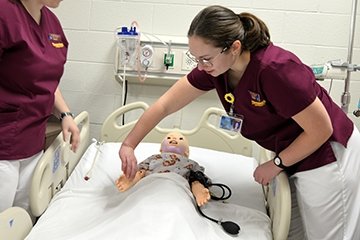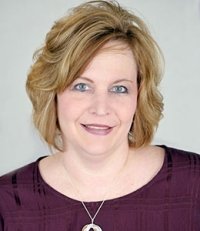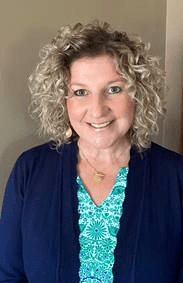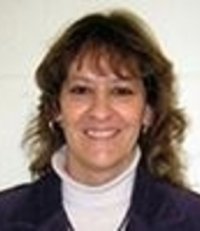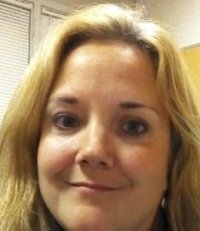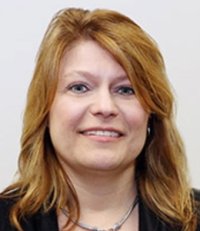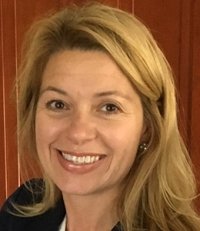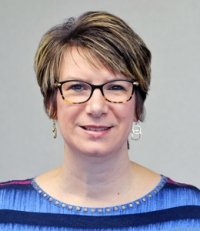Nursing
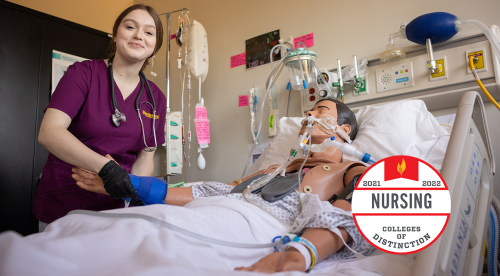
- Contact Information
-
- 570-389-4426
- Fax: 570-389-5008 (fax)
- Send an Email
-
104 Old Science Hall
Recognized as a leading accredited undergraduate and graduate level nursing program, Commonwealth University - Bloomsburg prepares future nurses for a wide range of careers in critical care, obstetrics, pediatrics, rehabilitation, trauma, home care, and other clinical specialties and case management.
- ASN LPN to RN
- BSN: Bloomsburg
- BSN Accelerated/Second Degree
- RN to BSN: Bloomsburg: 2-Year / 3-Year
*Please see the CU degree requirements effective Fall 2023. All enrolled students can also review their degree program requirements and track progress to degree completion in Degree Works.
- Nursing (BSN) — This rigorous and demanding program requires students to have exceptional leadership and time management skills, self-assurance and critical thinking.
- RN-BSN — The 100% online RN-BSN program is a perfect fit for those RNs seeking to continue their education. This progressive curriculum provides vital knowledge and skills for multifaceted roles of a professional nurse.
- RN-BSN-MSN — As health care shifts from hospital-centered, inpatient care to primary and preventive care, the health system requires registered nurses who not only can practice across multiple settings but can function with more.
- Nursing (MSN) — The challenging program vital knowledge and skills for multifaceted roles of advanced nursing practice. Concentrations include
- Doctor of Nursing Practice (DNP) — This program prepares nurse leaders to apply advanced practice skills at the highest level of clinical practice. Students will be prepared to assume a higher level of responsibility and leadership in nursing and health care. programs include:
*Please see the BL degree requirements for students who were enrolled prior to Fall 2023 and remained in the BL Program. All enrolled students can also review their degree program requirements and track progress to degree completion in Degree Works.
Freshman Applicants — To ensure there's an available spot and you're meeting any program-specific deadlines, applications must be received by Nov. 15.
Internal Transfers — Deadline for transfer is Nov. 15. To be considered, students must attend an interest session and complete the BU Internal Transfer Student Application. The applications are available in the department office. Please call to schedule your interest session.
External Transfers — Deadline for transfer is Nov. 15. If you're currently attending, or you have earned credits after high school, at a regionally accredited college or university, you can apply to the BSN program. Transfer application. Final decisions will be made around mid-May by the Department of Nursing. The nursing program is very competitive, so space is limited.
All deadlines are based on the qualifications of the candidate. Our nursing major is highly competitive; this deadline must be met. Decisions are not made on a rolling basis for nursing, unlike other undergraduate programs.
Departmental Mission Statement
The faculty of the Breiner School of Nursing accepts as its own the mission of Commonwealth University and recognizes education for professional nursing as an integral part of higher education. The educational process integrates concepts drawn from the liberal arts and sciences into the baccalaureate, masters, and doctoral programs in nursing to assist students in acquiring the knowledge, skills, attitudes, and professional behaviors essential to beginning or advanced practitioners of professional nursing.
Effective May 1992; Revised June 2011; Revised October 2020
Departmental Philosophy
The faculty believe that the person is an open system interacting with other systems – family, group and community. The person is a holistic being with biopsychosocial spiritual and cultural needs. As an open system, the person is in continuous and dynamic interaction with the environment. The person adapts to changes in this environment and grows throughout the life span. The faculty believe in the inherent worth and uniqueness of individuals and populations. Each person possesses human sameness yet reveals unique cultural, racial, religious, gender, lifestyle, genetic, and age-related characteristics. Each person has the right to be treated with dignity and respect in a nondiscriminatory manner.
Environment
The faculty believe that the environment is multidimensional, global, dynamic, and integral to persons and their biopsychosocial, spiritual, and cultural needs. Environment encompasses diverse sociocultural, psychological, technological, and physiological elements. These elements influence and are influenced by the interaction of legal, ethical, physical, economic, sociological, and political forces. People experience the environment as individuals, families, and communities who share common beliefs and values. Given the dynamic and reciprocal relationship between the person and the environment, nursing must be responsive to lifestyle and environmental factors that are major determinants of population health.
Health
The faculty believe that health is a dynamic process across the life span, up to and including end-of-life. Individual and population-based health is defined and influenced by the health/illness beliefs, values, attitudes, and practices of individuals, families, communities, and populations. Health is defined by the individual. Dynamic relationships among evolving individuals, families, and communities and changing social and environmental contexts are critical determinants of health.
Nursing
The faculty believe that nursing is a professional discipline that is both an art and a science. Nursing focuses on the person as individuals, families, communities, and populations in a caring and holistic manner. Nursing is a process of simultaneous, purposeful actions that are theory-based, contextual and grounded in critical thinking, clinical reasoning, and the scientific method. The goal of nursing is to promote optimal health and prevent disease and injury at individual and population levels. As practitioner, teacher, leader/manager, and consumer of research, the baccalaureate nurse values a sense of inquiry and participates in the process of retrieval, appraisal, and synthesis of evidence in collaboration with the person and other inter-professionals to guide practice and improve patient outcomes. At the master’s level, the advanced practice nurse assumes leadership as a practitioner, educator, manager/administrator, consultant, and researcher in specialized areas of nursing practice. The faculty believe that it is essential to educate nurses who view the profession as a scientific discipline possessing a belief system reflecting ethical values, practice according to professional standards, demonstrate concern for humankind, and commit to life-long learning, self-reflection and ongoing self-awareness development.
Effective May 1992; Revised May 1996; December 1999; December 9, 2005; April 17, 2009
Your support of the academic community is critical for its continued success. Gifts from our alumni and friends allow our faculty to mentor students in their research projects throughout the year and put our students in the best position to succeed by helping provide availability of the latest technology, research and teaching methods.
Your support makes a difference
Everyone needs a nurse at some point in their life, so please consider supporting the Commonwealth University Breiner School of Nursing with a monetary gift to help ensure that high quality nurses are there when you need them. Our nursing program is recognized as a leading accredited program, and it is also ranked as one of the most affordable in PA. Your donation can help increase funding for equipment, supplies, educational trips, and research opportunities that will enhance the critical thinking and technical skills of our students.
The Simulated Learning Lab (SLL) provides a learning environment for students to practice skills and critical thinking. The SLL contains numerous medium and high-fidelity adult and pediatric simulation manikins that allow students to critically assess and respond to varying patient situations they may not see in the clinical setting. The SLL also contains a simulated electronic patient record system for documentation practice and an automated medication dispensing system. The SLL is a vitally important environment for building confident nurses who can think critically.
Senior level students expand their political advocacy awareness by explaining the importance of being politically active and be competent in advocacy for patients and the profession in this ever-changing health care arena. Additionally, Commonwealth University nursing students participate in community and public health fairs and programs providing education to various population aggregates, and your donation can assist in obtaining the materials needed for these educational projects.
Commonwealth University’s Simulated Learning Lab’s (SLL) purpose is to provide our nursing students with a safe and controlled environment to learn and practice the skills necessary to excel not only during their clinical experiences at BU but throughout their nursing careers. The SLL, located on the fourth floor of Old Science Hall, is equipped with hospital beds, various injection and task trainer models, numerous manikins of differing fidelities from newborn to adult, and computerized medication dispensing systems.
Students have access to a computer program that allows for practice in reading and documenting in an electronic medical record during simulated clinical scenarios. Students engage in skills demonstrations, practice sessions, and clinical simulations during their sophomore, junior, and senior years.
The SLL employs numerous undergraduate managers who are proficient at nursing skills and leaders within the program. Managers must maintain a high GPA, receive faculty endorsement, and remain satisfactory in clinical courses for employment in the SLL. The SLL additionally employs a varying number of graduate assistants who are current and exemplary in their own clinical practice.
The SLL Director and Assistant Director has nursing experience in fields ranging from home health to the emergency department and are available Monday through Friday to oversee and expertly assist our nursing students.
Skills Testing
Demonstrations of select, course specific skills are provided at the sophomore and part of the junior years. As the student progresses in their junior and through their senior year, skills will transition to independent learning. Students are required to complete readings within their skills book, watch assigned videos, and take an online quiz prior to most skills demonstrations. Students will then have free time throughout the week to practice prior to a designated testing time.
Students are responsible for reviewing the BSN handbook and D2L Brightspace for specific requirements related to dress, lab coats, and nurse packs when coming to the SLL for practice or demonstration. While the SLL remains a safe place to learn and make mistakes, point reduction policies are in place in order to foster student accountability, professional behaviors, and efficient use of SLL resources.
Simulation
As part of the clinical curricular thread, undergraduate students complete simulated clinical scenarios during their sophomore, junior, and senior years.
Through the use of medium and high-fidelity manikins, and in some cases the use of standardized patients, pairs of students’ complete cases that include acute and chronic med-surg conditions, home health, school health, and prison or occupational nursing. Simulations are created around the psychomotor skills learned within the lab. The objective of simulation is to critically think about these acquired skills in order to safely apply them to their ‘patient’ in a safe and controlled setting. This process grows confidence in the nursing student as they continue and progress in a live clinical setting. Students will be provided with background information on their scenario prior to their simulation experience and will take part in a debriefing exercise following simulation.
SLL Resources
Nursing students may borrow various resources from the SLL including posters and models for health fairs, blood pressure cuffs, and various other client education materials for teaching projects. Additionally, nursing students have access to current course textbooks and small meeting rooms for group projects.
Contacts
SLL Director, Gail Jasman, MSN, RN
Nurse Instructor, Debra London BSN, RN



